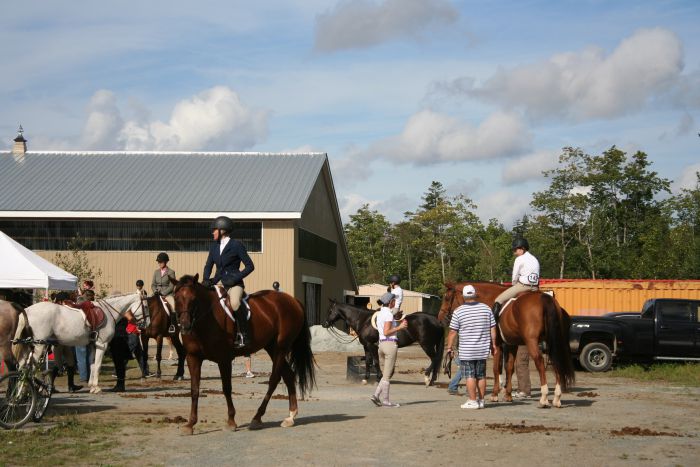KJIPUKTUK (Halifax) – A historic Black community continues its fight against a horse farm that is stopping residents from enjoying the use of their properties.
The smell, concerns about leaching of manure produced by Memento Farm’s 40 horses, and dust rising from a private road are making the lives of nearby residents of Lucasville miserable. People can’t even open their windows on a nice summer evening.

Lucasville, half an hour drive from Halifax and settled by Black refugees after the war of 1812, is a community under siege, says Iris Drummond, chair of the Lucasville Community Association.
“It’s not just the farm issue, it’s about everything that is being dumped here in our community with its long Black history. They do the same thing to Indigenous communities, to poor communities, and we’re speaking out,” says Drummond.
It appears the community has good reasons to be upset, not just with the farm, but also with with HRM bureaucrats and politicians.
The farm moved to the area, designated mixed use, in 2002, and for the next 13 years did not comply with zoning conditions. Boarding horses was fine, but the riding lessons and equestrian events offered at the site were in fact illegal.
That realization triggered a development agreement process initiated by the farm. The process would have allowed the community to put at least some constraints on the operation.
Based on the residents’ input the municipality could have set limits on the number of horses boarding at the farm. HRM could also have imposed a stormwater management regime, ordered more intense rodent controls, and set conditions around manure storage and removal.
Feeling the heat, Memento Farms abruptly stopped offering riding lessons and equestrian events and withdrew its application for the development agreement, leaving residents without a mechanism to lodge complaints, although nothing has changed as the farm will continue to board horses, which is its bread and butter.
When HRM planner Shayne Vipond delivered the message at a public meeting early in 2016 residents were very angry.
How could the farm have been allowed to break the rules for so long, they asked. And how could some fancy legal footwork by the farm owner take away their right to complain about such a bad neighbour? Where were city politicians and bureaucrats when the residents needed them?
“HRM never made anything transparent to us. We were never ever given a response to the petition we sent, signed by 200 people. We sent Mayor Savage a letter and we didn’t even get a word of acknowledgement, we’re too insignificant,” Drummond says.
Having run out of options through HRM, next Wednesday’s public meeting by the Nova Scotia Farm Practices Board, a provincial body under the Department of Agriculture, will give residents another kick at the can.
“It’s a public hearing, but the public can’t speak. Nonetheless, the number of people who attend sometimes speaks volumes,” says Drummond.
“If the ‘gentry’ wants horse riding for their kids close to where they live, then they should put it in their own backyards,” Drummond says.
The NS Farm Practices Board public meeting is scheduled for Wednesday July 19,2017, at 1:30pm, at the Fletcher room, Inn on the lake, 3009 Highway 2,Fall River.
See also: Lucasville – Fighting City Hall, racism and the smell of horse manure (Halifax Media Co-op)
If you can, please support the Nova Scotia Advocate so that it can continue to cover issues such as poverty, racism, exclusion, workers’ rights and the environment in Nova Scotia. A pay wall is not an option since it would exclude many readers who don’t have any disposable income at all. We rely entirely on one-time donations and a tiny but mighty group of kindhearted monthly sustainers.




need zoning laws to prevent this happening in a residential area